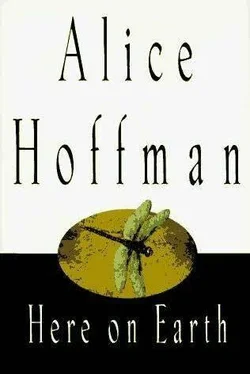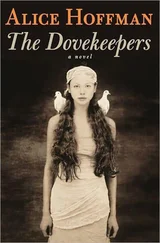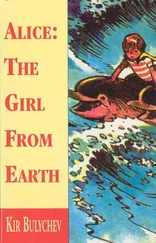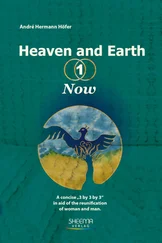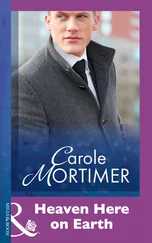Alice Hoffman - Here On Earth
Здесь есть возможность читать онлайн «Alice Hoffman - Here On Earth» весь текст электронной книги совершенно бесплатно (целиком полную версию без сокращений). В некоторых случаях можно слушать аудио, скачать через торрент в формате fb2 и присутствует краткое содержание. Жанр: Современная проза, на английском языке. Описание произведения, (предисловие) а так же отзывы посетителей доступны на портале библиотеки ЛибКат.
- Название:Here On Earth
- Автор:
- Жанр:
- Год:неизвестен
- ISBN:нет данных
- Рейтинг книги:5 / 5. Голосов: 1
-
Избранное:Добавить в избранное
- Отзывы:
-
Ваша оценка:
- 100
- 1
- 2
- 3
- 4
- 5
Here On Earth: краткое содержание, описание и аннотация
Предлагаем к чтению аннотацию, описание, краткое содержание или предисловие (зависит от того, что написал сам автор книги «Here On Earth»). Если вы не нашли необходимую информацию о книге — напишите в комментариях, мы постараемся отыскать её.
Here On Earth — читать онлайн бесплатно полную книгу (весь текст) целиком
Ниже представлен текст книги, разбитый по страницам. Система сохранения места последней прочитанной страницы, позволяет с удобством читать онлайн бесплатно книгу «Here On Earth», без необходимости каждый раз заново искать на чём Вы остановились. Поставьте закладку, и сможете в любой момент перейти на страницу, на которой закончили чтение.
Интервал:
Закладка:
You have to go where you’re taken, don’t you? You have to follow where you’re led. Don’t think, don’t stop, don’t hesitate. Maybe this is destiny; it’s the hand of fate against your skin, the love of your life. If there’s a warning to be heard, March won’t listen. She’s like those foolish doves who have stayed on to nest in the chestnut tree this fall, and who will probably freeze to death before the New Year. She’s kin to the rabbit who dared to cross Sister’s path, then decided it might be best to lie silent, rather than break and run.
Hollis has his hand inside her jeans now; he’s pushed her down so that her back is flat against the seat. She knows the way he likes it, as if love was a secret; or at least, that’s the way he likes it with her. Other women, the ones from the Lyon, would say he prefers to get his business over with fast, and maybe it’s just as well. He’s so intense he can scare some women. Alison Hartwig fainted the first time Hollis fucked her, and now she calls him every day on the telephone, so she can hear his voice and imagine that he loves her before she hangs up.
All this time, March is the one Hollis has wanted. She’s the one who made him miserable, and he hasn’t forgotten that for a moment. Night after night, he’s come here and parked in this same exact space, to stare at this house. Over and over again, he’s anticipated the hour when she’d come back to him, and how good it would be to have her be the one to beg, but maybe he’s waited too long. Maybe all that waiting has tainted things, and left his love with a sour taste. It’s always been this way for Hollis; the more he has of something, the more he wants. Maybe he can never be satisfied, but he knows how to satisfy March; he’s doing it right now, she’s there at the edge as he moves his fingers inside her slowly. He doesn’t stop when she tells him to, and then he stops just when she’s about to come. He kisses her then, he leaves her longing for more; desperate is exactly the way he wants her.
By now, Gwen has unhooked the dog’s leash and gotten herself a soda from the fridge. Maybe she’s wondering why her mother’s out so late, as she goes into the sewing room, where her bed is made up. Maybe she thinks she sees something, there behind the quince, when she looks through the window. On any other night, March would have worried about her daughter, alone in the house, but she can’t think about that now. She’s already agreeing to see Hollis tomorrow, and the next day, and the one after that. Sometimes love is like a house without any doors. It’s a sky filled with so many stars it’s impossible to see a single one. Out in the front yard, the mourning doves are chattering with the cold. Their pale gray feathers are no comfort in the wind, yet they stay. It’s too late, after all; they made their choice at the end of summer. They’ll just have to accept the consequences.
11
Every Wednesday afternoon, at the farmers’ market held in the parking lot of the library, Louise Justice buys fresh herbs. She always fixes her roast chicken the way the Judge likes it, with sage and pepper and plenty of rosemary, for remembrance. In October, the weather can be a tricky thing, but today it’s warm and sunny, with a wide blue sky that brings tears to Louise’s eyes. She knows everyone at the market, and has for years. She waves at Harriet Laughton, who’s buying so much her grandchildren must be coming up from Boston for the weekend. Funny thing-in the sunlight Louise’s own hands look strange to her, with their brown spots and thin, papery skin. She can practically see right down to the bone.
There, on her right hand, she wears the opal her grand-mother left to her, a gift she has come to believe has brought her bad luck. She’s grown so convinced of this that she went down to that new lawyer in town, Janet Travis, and asked for an addendum to the will the Judge drew up for them. She wants the opal sold and the proceeds to go to the Fire-men’s Fund. She’ll be damned if she leaves the dreadful thing to Susie.
No one in town would consider Louise to be unlucky, and she certainly would never reveal anything that might lead to this conviction. It’s no one’s business, is it, really? No one’s but hers alone. She heads for the flats of marigolds Millie Hartwig is selling, making sure to avoid that old Jimmy Parrish, who seems to admire racehorses far more than he does human beings. Well, maybe he’s got something there. When Louise was growing up, on Mount Vernon Street in Boston, she thought life was a fine and glorious thing. She believed that all her dreams would come true, and why not? She was spoiled and pretty and knew how to charm a man. She met the Judge at a Christmas party when she was sixteen and he was twenty, and aside from the times she’s wanted to murder him, which are too numerous to count, she has always loved him. One man, for all these years. One man, who hasn’t loved her back.
Louise has often wondered if Susie hasn’t picked up on her unhappiness, for Louise’s beautiful daughter has never married, and it seems she never will. Not that Susie hasn’t had her share of boyfriends. You can’t live in this town and not be aware that Susie has dated nearly every available man. Currently, she’s seeing Ed Milton, the police chief, and of course Louise is not supposed to know about it, since Susie is a terribly private person, which is downright impossible in a town as small as this. Gossip is a strange thing; it’s both silly and painful, and although people are careful not to talk in front of Louise, she has certainly felt its sting.
“Do not buy the cranberry-walnut tart.”
Harriet Laughton has come up beside her.
“Too much sugar?” Louise guesses.
“Lard,” Harriet informs Louise.
“I’ve cut out all sweets, anyway.” Louise waves to Ken Helm, who does odd jobs for her and is over at the far end of the market, selling bundles of firewood. Louise and Harriet start to walk on together, but Louise spies some yarn and stops to riffle through the display basket. Soft lamb’s wool, splendid stuff. She needs another skein to finish the blanket for Susie’s Christmas present. Not that Susie needs her blanket to stay warm-from what Louise hears, Ed Milton is practically living at her place, buying Susie’s groceries and walking her dogs. Well, good for Susie. Great for her.
“You’d never know what she was up to,” Harriet says now. “From the innocent look of her.”
Louise glances up and sees that Harriet is referring to March Murray, who’s over at the bakery kiosk, reaching for one of the cranberry-walnut tarts. March laughs as she pays the vendor. With her dark hair loose, wearing old jeans, she looks like a girl.
“I hear they can’t get enough of each other,” Harriet whispers. “Just like the bad old days.”
“I’m sure you’ve heard wrong,” Louise says. She can discern a prim tone creeping into her voice. “March Murray is too smart a girl to fool around with the likes of him.”
Louise sees a softening in Harriet’s face, something like pity, which Louise never could stand. As if Louise didn’t comprehend that love has nothing to do with intelligence or common sense. As if she was some fuddy-duddy who didn’t know what was happening for all those years.
“I’m off,” she tells Harriet, and she lets the yarn fall back into the basket. She’ll get it next week, if it’s still what she wants. “See you Thursday,” she calls over her shoulder, for that is their bridge night and has been for thirty-two years. It was almost that long ago that she found out, and for all that time she has kept her mouth shut. She’s done better than most well-trained prisoners of war, and in a way, she’s proud of herself.
Still, October is always difficult for Louise. It was this time of year when she discovered the ring, a square emerald set in eighteen-karat gold, in the pocket of the Judge’s overcoat. She remembers smiling when she opened the little plastic case from the jewelers in Boston, so sure was she that the ring was meant to be her birthday present in November. But for her birthday that year, the Judge gave her a bathrobe, peach silk, from Lord & Taylor. Nice, but no emerald. She waited then, for Christmas. She was sure the small package he placed beneath the tree contained the ring, but it was a thin, gold bracelet. Lovely, of course, but she has never worn it. That bracelet is in the back of her jewelry box, where it will remain.
Читать дальшеИнтервал:
Закладка:
Похожие книги на «Here On Earth»
Представляем Вашему вниманию похожие книги на «Here On Earth» списком для выбора. Мы отобрали схожую по названию и смыслу литературу в надежде предоставить читателям больше вариантов отыскать новые, интересные, ещё непрочитанные произведения.
Обсуждение, отзывы о книге «Here On Earth» и просто собственные мнения читателей. Оставьте ваши комментарии, напишите, что Вы думаете о произведении, его смысле или главных героях. Укажите что конкретно понравилось, а что нет, и почему Вы так считаете.
